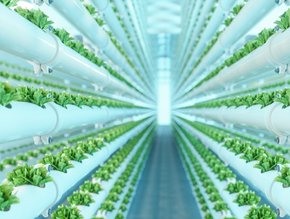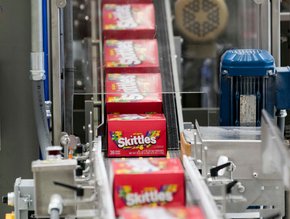Commercial development of gene-edited food legal in England

The Genetic Technology (Precision Breeding) Act passed into law on Thursday 23 March, a major step in unlocking growth and innovation in new technologies, reinforcing food security in the face of climate change and ensuring England becomes a world-leader in agri-food innovation, said the UK Government.
The Act will set in motion changes to allow farmers to grow crops which are drought and disease resistant, reduce use of fertilisers and pesticides, and help breed animals that are protected from catching harmful diseases. Precision breeding involves using technologies such as gene editing to adapt the genetic code of organisms – creating beneficial traits in plants that through traditional, breeding would take decades to achieve. This enables scientists to safely create foods that are more flexible, adaptable and plentiful for years to come.
Under the provisions of this Act, a new science-based and streamlined regulatory system will be introduced to facilitate greater research and innovation in precision breeding - with stricter regulations remaining in place for genetically modified organisms (GMOs).
Food Minister Mark Spencer said: "The Genetic Technology Act is fantastic news for British consumers and farmers. Precision Breeding technologies are the future of food production not just at home, but around the world, and this Act will put our nation at the forefront of this revolution.
"Some 40% of crops globally are lost every year to floods, pests and other external events, and this new law will unlock our agri-biotech industry to support resilient food production for decades to come."
Defra’s Chief Scientific Adviser Gideon Henderson added: "This is an important time for agricultural science. The ability to use gene editing to make precise, targeted changes to the genetic code of organisms, in a way that can mimic traditional breeding, enables development of new crop varieties that are more resistant to pests, healthier to eat, and more resilient to drought and heat as climate changes.
"The Genetic Technology (Precision Breeding) Act covers precision-bred plants and animals developed through techniques such as gene editing. This is different to genetic modification (GM), which produces crops containing genetic changes that could not have occurred through traditional breeding or occur naturally.
"The Act ensures that before we see any changes to market, the Food Standards Agency will consult on new food and feed legislation and produce a new proportionate risk assessment for precision bred food and feed. England joins countries such as Argentina, the US, Australia and Japan that have already enacted similar legislation, driving innovation on a global scale and helping fight the greatest challenges facing the world.
"While there is great potential for increasing innovation, the government recognises that there is a need to safeguard animal welfare in the new regulatory framework. That is why we are taking a step-by-step approach, enabling use of precision breeding technologies with plants first followed by animals later."
The Act has the powers to:
- Remove plants and animals in produced through precision breeding technologies from regulatory requirements applicable in England to the environmental release and marketing of GMOs (Genetically Modified Organisms).
- Introduce two notification systems; one for precision bred organisms used for research purposes and the other for marketing purposes. The information collected will be published on a public register on GOV.UK.
- Establish a proportionate regulatory system for precision bred animals to ensure animal welfare is safeguarded. We will not be introducing changes to the regulations for animals until this system is in place.
- Establish a new science-based authorisation process for food and feed products derived from using precision bred plants and animals.






